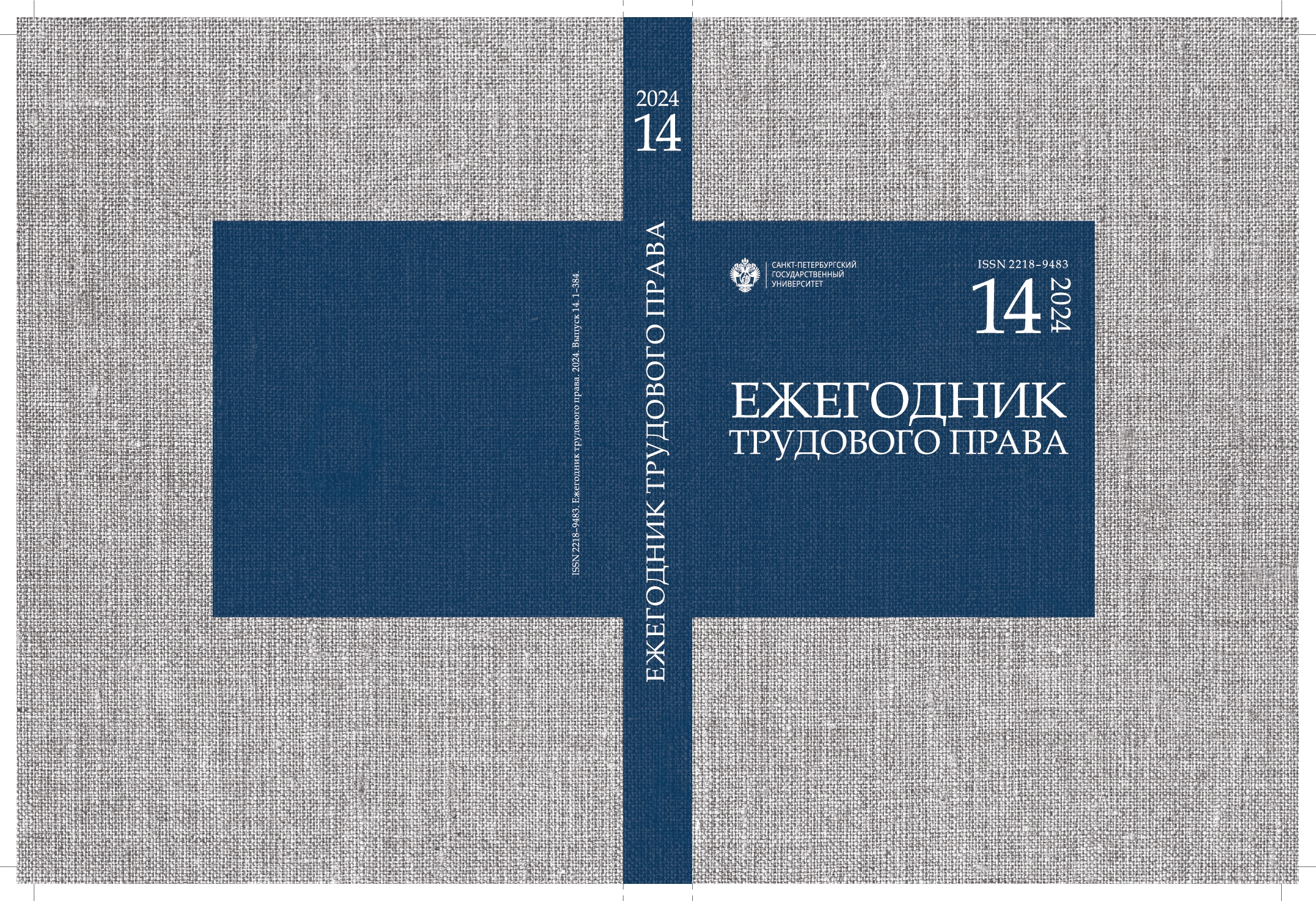Problems and prospects of labor law in the research of German labor law scientist Manfred Weiss
DOI:
https://doi.org/10.21638/spbu32.2024.117Abstract
The purpose of writing this article was the desire to acquaint readers with the most significant scientific views of a respected colleague, a scientist in the field of labor law, Professor Manfred Weiss. For the review, the scientific research of Professor Weiss over the past ten years, concerning the most pressing problems of labor law, was selected. The result of studying the works of Professor Weiss was the systematization and presentation of the problematic issues he studied within the framework of three sections of the article.
In the first section, assessing the risks of labor law delegitimization, Professor Weiss explores the transformation of the world of work at various historical stages, including the present one. Labor law should be adapted to modern conditions in several areas: the search for new models of organizing the collective will of workers; expanding the scope of labor law; mitigating the risks posed by new forms of employment; human rights and protection against discrimination.
The second section of the review of works is devoted to the transnationalization of labor relations. According to Weiss, the lack of decent labor standards in global supply chains and the irresponsibility of multinational corporations are acute. Tools to counter these forces should be sought not in national labor law, but in the international context. Attempts to develop binding international standards have so far been unsuccessful, and according to Weiss, international framework agreements have the greatest potential in regulating labor relations with a transnational element.
Finally, the third section brings together Professor Weiss' reflections on the impact of digitalization on the world of work. Recognizing the inevitability of human displacement by artificial intelligence and robots in certain areas, the scientist is concerned about the development of early solutions to several of the most pressing problems in the interests of respecting the rights and interests of workers. These include strengthening the role of lifelong learning, revising the scope of labor legislation in a circle of people, revising the concept of working time, strengthening the protection of personal, official and commercial information, changing the approach to protecting the life and health of an employee and searching for a new concept of work-life balance, finding ways development of collective representation. The professor recognizes the positive aspects of the impact of digitalization on the world of work, but on the condition that its negative consequences in the form of objectification of labor subjects will be overcome.
Keywords:
precarious employment, transnational corporations, self-employment, digitalization, flexicurity, international framework agreements, platform employment, crowdsourcing
Downloads
References
Библиография/References
Weiss, Manfred. 2011. “Re-Inventing Labour Law?” Eds G. Davidov, B. Langille. The Idea of Labour Law. Oxford: Hart Publishing: 43–56.
Weiss, Manfred. 2017. “The Future of Labour Law in Europe: Rise or Fall of the European Social Model?” European Labour Law Journal 8 (4): 344–356. https://doi.org/10.1177/20319525177438
Weiss, Manfred, and Thomas Klebe. 2019. “Workers’ Participation 4.0 — Digital and Global?” Comparative Labor Law & Policy Journal 40 (2): 263–284.
Weiss, Manfred. 2020. “Challenges for Labour Law and Industrial Relations.”Global labour and employment relations: Experiences and challenges. Eds D. Kim, M. Rönnmar. Seoul: Parkyoung Publishing & Company.
Weiss, Manfred. 2021. “Challenges for Labour Law in the Era of Digitalization.” The Future of Work: Labour Law and Labour Market Regulation in the Digital Era. Ed. by A. Perull. Wolters Kluwer.
Downloads
Published
How to Cite
Issue
Section
License
Articles of "Russian Journal of Labour & Law" are open access distributed under the terms of the License Agreement with Saint Petersburg State University, which permits to the authors unrestricted distribution and self-archiving free of charge.




